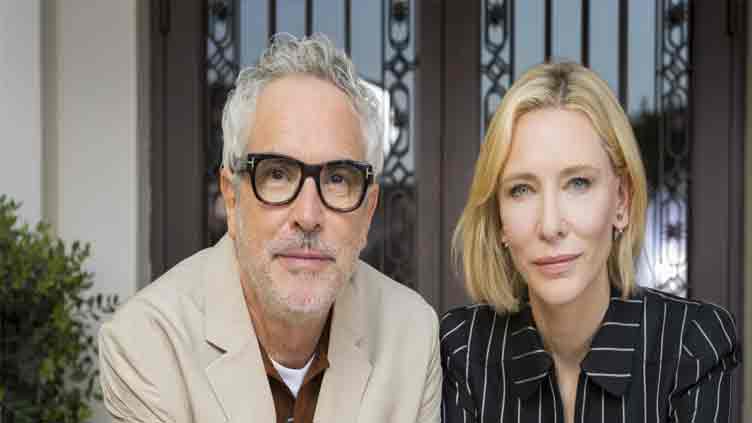Alfonso Cuarón and Cate Blanchett made a television series. 'Disclaimer' is already a triumph

Entertainment
Alfonso Cuarón and Cate Blanchett made a television series. ‘Disclaimer’ is already a triumph
VENICE, Italy (AP) — “Disclaimer” pulls the rug out from the audience before they’ve had the chance to get settled.
There’s no building of empathy for its central character, Cate Blanchett’s Catherine Ravenscroft. There’s no luxuriating in her banal every day, at work or in her plush London home with her snobbish husband (Sacha Baron Cohen) and directionless, resentful adult son (Kodi Smit-McPhee).
All we know at the beginning of the seven-part series, which begins rolling out on Apple TV+ Friday, is that she’s an acclaimed documentary filmmaker who is being feted by Christiane Amanpour.
But almost immediately her life starts to spiral when she receives an anonymous, self-published book about a young mother on vacation in Italy with her toddler son that’s shockingly familiar.
The woman in the book meets a young man who later drowns while trying to save her son. When the police question her, she denies knowing him and returns to London.
It’s a memory that Catherine has long kept buried and secret but has now emerged in spectacularly embarrassing, reputation-destroying fashion along with a batch of intimate, provocative photos that the young man, Jonathan (Louis Partridge) took the night before.
“Disclaimer” throws you into the fire; And like everyone else in the show, from strangers reading the book to Catherine’s husband, you start making assumptions about and judging her. Not even Blanchett was immune reading the script. She wondered: Is this woman awful?
“I was shocked at the layers of judgment that I transposed on the character,” Blanchett said. “The challenge and agony of playing a character like this is that the crisis happens as soon as you meet her. We know nothing about her, only what people are saying about her.”
Told in seven chapters, the psychological thriller comes from Oscar-winning director Alfonso Cuarón who read Renée Knight’s book before he’d even made “Roma.” The filmmaker had never dabbled in longform before, but soon realized while writing the script that it was the only way to tell it in a satisfying way.
Instead of getting hung up on the ins-and-outs of making a television show, he decided he would just do it his way: Like a film, or, rather, seven films. After all, Rainer Werner Fassbinder, David Lynch and Krzysztof Kieślowski had done it too.
Cuarón had written Catherine with only Blanchett in mind, an actor he knew had the incredible range and sophistication required by the role. He teased that he was also jealous of his friends Alejandro Iñárritu and Guillermo del Toro, who had already had the privilege of directing (and raving about) her. What he didn’t expect, and was pleasantly surprised about, was her complete and total commitment as a producer, even as the shoot stretched on to nearly a year.
“I enjoy collaboration,” Blanchett said. “I’m interested in the whole thing. And I think you have to know when you are going to be useful and when you need to just sit back and be quiet.”
Sometimes, Cuarón said, he’d be on board with her suggestions. Other times he chose a different path and usually regretted it.
But they consulted on everything from the smallest details (like prop placement) to the biggest, including the script and casting Kevin Kline as Stephen Brigstocke, the father of the young man Catherine met so many years ago.
He’s recently lost his wife too, has retired from his job and has nothing but time to stew about how his happy life became so tragic. Revenge is on his mind.


